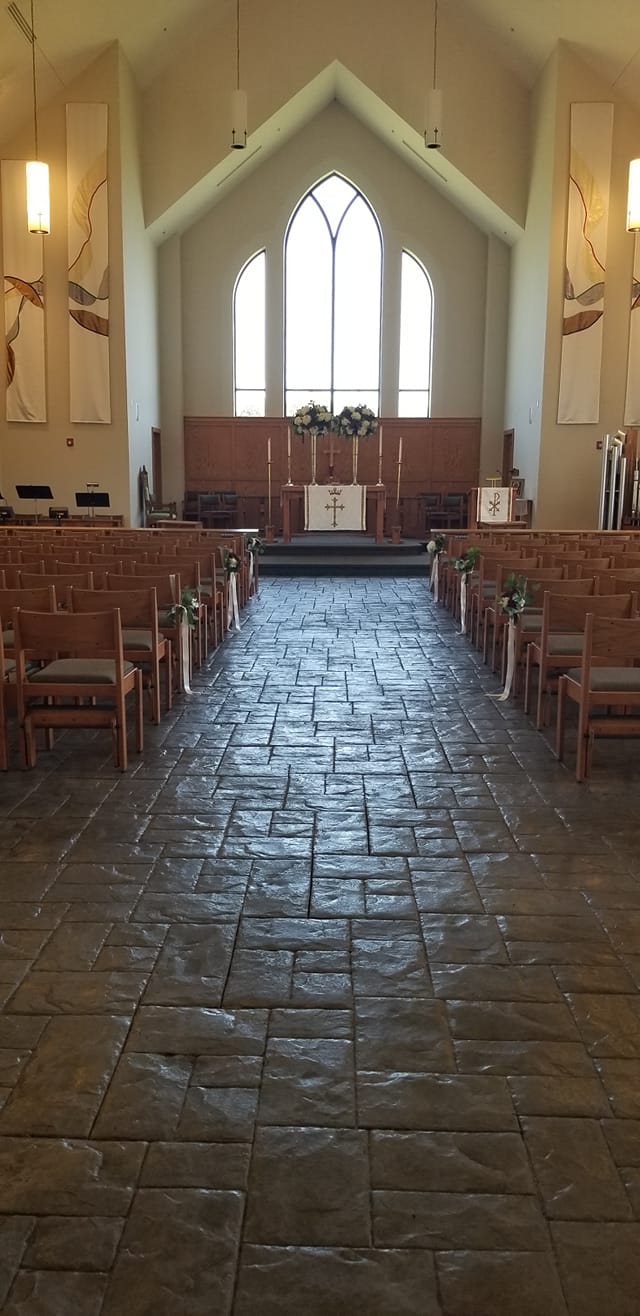Twelfth Sunday after Pentecost
Sunday, August 11, 2024
Regina Berens
In the name of the Father, and of the Son and of the Holy Spirit.
Amen.
Please be seated.
“Jesus said to them, ‘I am the Bread of Life. Whoever comes to me will never be hungry and whoever believes in me will never be thirsty”’. Later in this morning’s passage, in verse 51, Jesus says, “I am the Living Bread that came down from heaven” and reminds us of the manna from heaven that sustained the Israelites for the forty years they wandered in the desert.
Bread was probably one of the earliest foods humans developed as they looked for ways to do something different wit h their crops, preferably something that could be stored for a few days.
But the bread made by humans, whether it’s tortillas, naan, baguettes or Wonder Bread, has no life. Even the manna from heaven that was not picked up by nightfall disappeared. If someone hoarded more than they needed for the day, the excess was moldy and inedible the next morning.
But Jesus says, “I am the Living Bread”. What does he mean?
It’s important to note the word for “life” used in the original Greek. There are two Greek words for “life”. One of our supply priests noted in her sermon that the Greeks have two words for “life”. One is “bios” (as in biology); one is “zöe” (as in zoology). Ζωὴ refers to animal life, “Bios” refers more to a mode of life- for example, “lifetime,” “livelihood, means of living, to make one’s living off, to live by a thing” and “a life, biography.” I’ll spare you the rest of the 50-page Master;’s thesis on Aristotelian philosophy where I found this distinction and just say that Zoe has a deeper meaning: not just how life is led, but life itself.
And when Jesus says, “I am the living bread” and “I am the bread of life”, “I am the bread that came down from heaven”…the word the writers of the NT used every time was Ζωὴ. Jesus is the difference between the very existence of life and the lack of life.
What are Jesus’ essentials for everlasting life?
First, we need to believe in Him and put our trust in Him.
We also need to live like followers of Christ.
There are instructions right there in today’s reading from Paul’s letter to the Ephesians. Paul was addressing a group of new Christians, coming from different religious and cultural backgrounds and varying levels of economic status. These words are so true, even two millennia later, that they’re worth cutting out of your Bulletin and putting on your bathroom mirror- at least till the end of election season.
“…for we are members of one another. Be angry but do not sin; do not let the sun go down on your anger, and do not make room for the devil.
Put away from you all bitterness and wrath and anger and wrangling and slander, together with all malice, and be kind to one another, tenderhearted, forgiving one another, as God in Christ has forgiven you.”
You can think of this as a recipe.
In a sermon I heard recently, the priest told of attending a potluck luncheon for members of the parish who were over 80 years old. As dishes were passed around, members asked, “Isn’t that Mildred’s potato salad?” “Aren’t those Sally’s lemon bars?” Mildred and Sally were long gone but the treasured recipes they passed on were saved and re-created, and kept their memories alive.
There’s nothing in scripture portraying Jesus making potato salad or lemon bars but his recipes for eternal life were preserved and passed on to us.
The recipe isn’t always easy to follow and it may never come that close to the original. Those of you who remember my late husband Ron probably remember the cookies he baked for coffee hour. Ours was the third church for which he did this, starting with one in New Jersey where he’d bake 18 dozen for a Sunday and they’d disappear. When he brought them to a bake sale, the bake sale organizers bought them up before they even made it to the sales tables. His recipes are in church cookbooks and I have them, too. Once in awhile I DO make a batch for church events but they’re never quite like Ron’s.
This morning’s reading distills the message into one sentence, “Therefore be imitators of God, as beloved children, and live in love, as Christ loved us and gave himself up for us, a fragrant offering and sacrifice to God.
We may never re-create the original but we can try to get as close as possible to the original as possible, with God’s help.
Amen.


